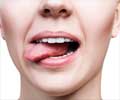Q: Which specialist doctor should I see if I have Oral Cancer?
A: You should consult a general surgeon or an ENT specialist
Q: Do all betel nut or tobacco chewers get oral cancer?
A: Betel nut and tobacco chewers are definitely more prone to oral cancer than those who do not have this habit, but there are also other factors such as genetics, diet, environment and the person's immune system.
Q: Will stopping the habit improve the condition?
A: There are certain lesions seen frequently in the mouth of betel nut and tobacco chewers. These lesions precede oral cancer. If these preceding lesions are identified in time, then stopping the habit will definitely improve the lesion or maybe even cure it.
Q: Is pain an early sign of Cancer?
A: Not always. Pain is usually a late symptom of cancer. People often think that persistent pain such as headache or constant pain in the region of the face means cancer, but this is rarely the case. However pain should not be ignored.
Q: What are the side effects of treatment?
A: There are side effects to all forms of treatments involving oral cancer.
Q: Surgery
A: If the lesion is small then there are usually no side effects, but if the lesion is large then it may require the removal of the affected structure resulting in speech defects difficulty in swallowing and also facial deformities. These conditions can be rehabilitated by speech therapy and by physiotherapy.
Q: Radiation therapy
A: During and after radiation therapy the patient develops mouth sores. The patient also suffers from reduced secretion of saliva, which causes difficulty in swallowing and makes the patient more prone to teeth decay and other forms of infection.
Q: Chemotherapy side effects depend on the kind of drug used. The usual side effects are loss of hair, ulcers in the mouth and the stomach, reduced resistance to infection, loss of appetite, nausea, vomiting, and lack of energy.
6. Is oral cancer fatal?
A: The best outcome for oral cancer is always an early diagnosis and treatment.











